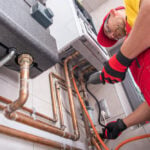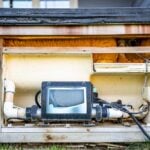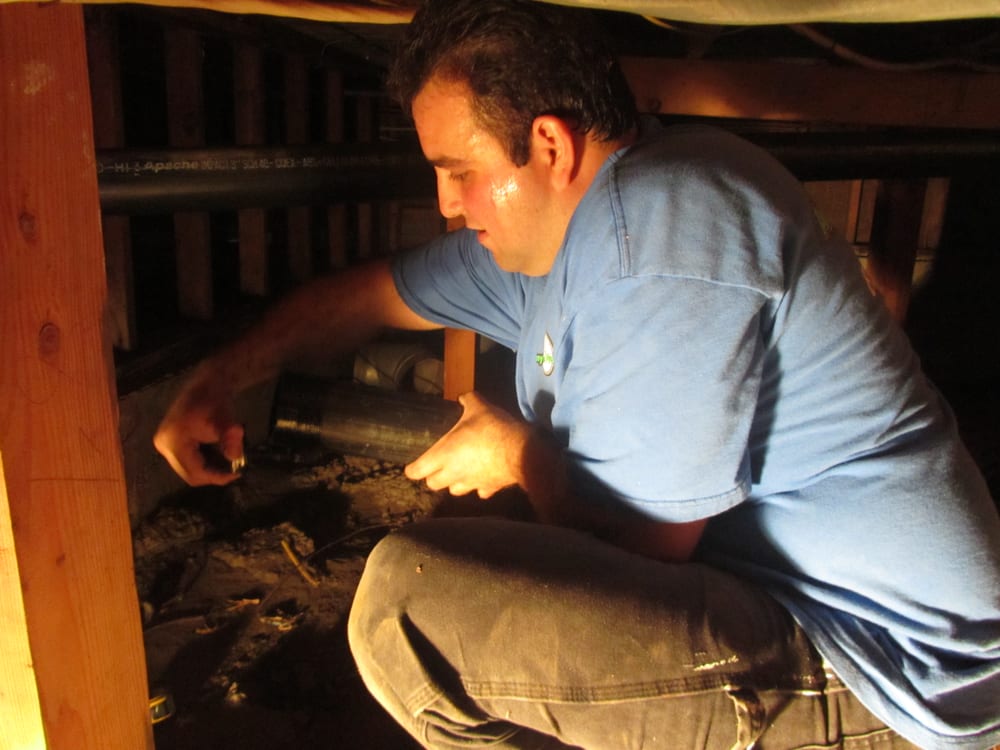
Ultimate Guide to Choosing Tankless Water Heaters
In the quest for more efficient and innovative home appliances, tankless water heaters have emerged as a superior alternative to traditional tank water heaters. Unlike their bulky predecessors, which constantly heat a large reservoir of water, tankless water heaters provide hot water on demand, ensuring a continuous supply while saving energy. This guide delves into the advantages of tankless water heaters and provides a roadmap for homeowners looking to make the switch. From understanding how these units work to evaluating energy efficiency, longevity, and sizing, we aim to equip you with the knowledge to choose the right tankless water heater for your home.
Understanding Tankless Water Heaters
How They Work
Tankless water heaters, also referred to as on-demand water heaters, directly heat water without relying on a storage tank. When you turn on a hot water faucet, cold water flows through a pipe into the unit, where it’s heated by either an electric element or a gas burner. This method guarantees that hot water is always on hand without the necessity of storing and constantly reheating water in a tank, resulting in considerable energy savings.
Types of Tankless Water Heaters
There are two main types of tankless water heaters: electric and gas. Electric tankless water heaters are powered by electricity and are ideal for smaller applications, such as a single bathroom or kitchen sink. They are known for their compact size and ease of installation. Gas tankless water heaters, including natural gas and propane options, can heat water more quickly than electric units and are better suited for whole-house applications. Condensing tankless water heaters, a subtype of gas models, utilize a secondary heat exchanger to capture heat from exhaust gases for even greater efficiency.
Key Terminology
- Flow Rate: Measured in gallons per minute (GPM), this indicates how much hot water the unit can deliver at once.
- Temperature Rise: The difference in temperature between the incoming cold water and the desired hot water output.
- Condensing: Refers to tankless heaters that capture exhaust gases for additional heat, improving energy efficiency.

Advantages of Tankless Water Heaters
Energy Efficiency
One of the most compelling reasons to choose a tankless water heater is its superior energy efficiency. By heating water only when it’s needed, tankless units avoid the standby energy losses associated with traditional tank water heaters. Studies show that homes using less than 41 gallons of hot water daily can achieve 24%-34% more energy efficiency with tankless water heaters compared to traditional units. For homes that consume more hot water, the energy savings, while slightly lower, are still significant.
Longevity and Durability
Tankless water heaters not only outperform traditional tank water heaters in efficiency but also in longevity. With proper tankless water heater maintenance, these units can last more than 20 years—nearly double the lifespan of traditional tank models. Regular maintenance is key to ensuring the durability of your tankless unit, including descaling to prevent mineral build-up and checking system components.
Space Savings
The compact size of tankless water heaters is a major advantage for homeowners with limited space. Unlike bulky traditional tank water heaters that require a significant amount of room for installation, tankless units can be mounted on a wall, freeing up valuable floor space in your home. This makes them an ideal solution for smaller houses or apartments where space is at a premium.
Continuous Supply of Hot Water
One of the most valued advantages of tankless water heaters is their capability to offer an endless supply of hot water. Traditional tank water heaters may deplete their hot water reserves during times of high demand, but tankless heaters supply hot water as needed, guaranteeing that you’ll never have to suffer through a cold shower again.
Environmental Impact
For environmentally conscious homeowners, the reduced energy consumption of tankless water heaters translates to a smaller carbon footprint. By eliminating the need to constantly heat a large volume of water, tankless units contribute to lower greenhouse gas emissions, particularly in the case of electric tankless water heaters or condensing tankless models that utilize natural gas more efficiently.
Choosing the Right Tankless Water Heater
When it comes time to choose a tankless water heater for your home, several crucial factors come into play to ensure you select a unit that meets your hot water needs efficiently and effectively. Here, we break down these considerations to guide you through the selection process.
Determining Your Needs
The first step in choosing a tankless water heater is to assess your household’s hot water usage and peak demand. Consider how many appliances and fixtures (showers, sinks, dishwashers, etc.) might use hot water simultaneously. This assessment will help you understand the demand level your new tankless water heater must accommodate.
Size and Capacity
Sizing a tankless water heater involves calculating the flow rate (in gallons per minute) and the temperature rise needed for your home. The flow rate is determined by adding up the flow rates of all appliances and fixtures that could be using hot water simultaneously. The temperature rise is the difference between the incoming water temperature and your desired hot water temperature. A correctly sized tankless water heater will ensure you have a steady supply of hot water for your needs without overburdening the unit.
Energy Source: Electric vs. Gas
Electric tankless water heaters and gas tankless water heaters each have their benefits and limitations. Electric heaters are generally easier and less expensive to install, require less maintenance, and are ideal for smaller demands, such as a single bathroom or appliance. However, they may not be as efficient for larger households with high hot water demand.
Gas tankless water heaters, including those powered by natural gas or propane, offer higher flow rates and are more suitable for whole-house applications. While the initial installation and tankless water heater installation cost can be higher—especially if additional venting is required—they tend to provide lower operating costs over time, particularly in areas where gas is cheaper than electricity.
Outdoor vs. Indoor Installation
When choosing a tankless water heater, consider whether an outdoor tankless water heater or an indoor model best suits your home. Outdoor units are designed to withstand the elements, eliminating the need for additional venting. However, they may not be suitable for extremely cold climates without proper freeze protection. Indoor models require venting but keep the unit protected from the weather, offering greater flexibility in placement.
Brand and Model Comparisons
Investigating various brands and models is crucial in selecting the right tankless water heater. Look for units with high energy efficiency ratings, reliable customer reviews, and warranties that offer peace of mind. Some brands specialize in electric tankless water heaters, while others are known for their gas-powered models. Comparing these can help you identify which tankless heater aligns with your hot water needs and energy preferences.

Cost Analysis
The financial aspect of choosing a tankless water heater involves considering the initial investment against the long-term savings. While tankless models generally have a higher upfront cost than traditional tank water heaters, they offer significant savings over time due to their energy efficiency.
Initial Investment vs. Long-term Savings
The purchase price of a tankless water heater can be offset by the reduction in energy bills it provides. Tankless units only heat water as it’s needed, avoiding the energy wasted by traditional tanks in maintaining a hot water supply. This efficiency can translate into substantial savings, especially for households with high hot water usage.
Available Rebates and Incentives
To encourage energy efficiency, many governments and utilities offer rebates and incentives for purchasing energy-efficient appliances like tankless water heaters. These can significantly reduce the initial cost of your new tankless water heater, making it an even more attractive investment. Researching available rebates in your area can help lower the upfront cost and shorten the payback period.
Installation Tips
The installation of a tankless water heater is a critical factor that can affect its efficiency and longevity. Whether you opt for a DIY approach or professional installation, understanding the process and potential challenges is key.
DIY vs. Professional Installation
For those with experience in plumbing and electrical work, installing an electric tankless water heater might be a feasible DIY project. However, gas models, due to their complexity and the need for proper venting, typically require professional installation. Choosing to have your tankless water heater professionally installed can ensure it meets local codes and operates safely and efficiently.
Common Installation Challenges
Tankless water heater installation can present several challenges, including the need for electrical upgrades for electric heaters or the installation of proper venting for gas models. Additionally, the location of the unit in relation to its point of use can impact its efficiency, as longer pipe runs can lead to heat loss. Understanding these factors beforehand can help you prepare for a smooth installation process.
Maintenance and Care
Proper maintenance and care are pivotal for ensuring your tankless water heater operates efficiently throughout its lifespan. Whether you choose an electric tankless water heater or a gas model, routine maintenance can prevent common problems, extend the unit’s life, and ensure you get the most out of your investment.
Routine Maintenance Tips
Regular descaling is crucial, especially in areas with hard water, to prevent mineral buildup that can affect the efficiency and flow rate of your tankless hot water heater. For gas models, checking the venting system for blockages and ensuring the air supply line is clear are essential steps to maintain safe and efficient operation. Outdoor tankless water heaters require additional inspection to ensure that external factors, such as debris or extreme weather conditions, haven’t compromised their functionality.
Troubleshooting Common Issues
Over time, you might encounter issues such as fluctuating water temperatures or reduced water flow. Many of these problems can be resolved with simple maintenance tasks like cleaning the inlet screen filter or adjusting the temperature settings. However, understanding when to tackle these issues yourself and when to call in a professional is key to maintaining your tankless water heater’s performance. Manufacturers often provide a troubleshooting guide that can help you address minor concerns efficiently.
Investing time in routine maintenance and addressing issues promptly can significantly impact the efficiency, performance, and longevity of your tankless water heater. As with any major appliance, a proactive approach to care will save you time, money, and hassle in the long run.

Conclusion
Choosing a tankless water heater for your home is a decision that offers numerous benefits, from endless hot water supply to energy savings and space efficiency. As you embark on this journey, remember that the key to making an informed decision lies in understanding your needs, considering the size of the tankless water heater required, and evaluating whether an outdoor or indoor model best suits your living situation.
When you decide to choose a tankless water heater, you’re not just investing in an appliance but embracing a lifestyle change that prioritizes efficiency, convenience, and sustainability. The initial step involves assessing your household’s hot water demand and choosing between electric and gas models. Each option offers unique advantages, and your choice will significantly influence the installation process and the unit’s overall efficiency.
Furthermore, the importance of routine maintenance cannot be overstated. Regular care extends the life of your tankless hot water heater and ensures it runs smoothly, providing your home with an efficient and reliable hot water supply. Whether you opt for DIY maintenance or professional servicing, keeping your unit in top condition is crucial for maximizing its benefits.
In conclusion, the journey to selecting, installing, and maintaining a tankless water heater is one that requires careful consideration and planning. However, the rewards—ranging from cost savings and energy efficiency to the comfort of never running out of hot water—make it a worthwhile investment for any homeowner. By following the guidelines outlined in this guide, you can confidently navigate the process of choosing the right tankless water heater for your home, ensuring years of efficient and trouble-free hot water supply.







